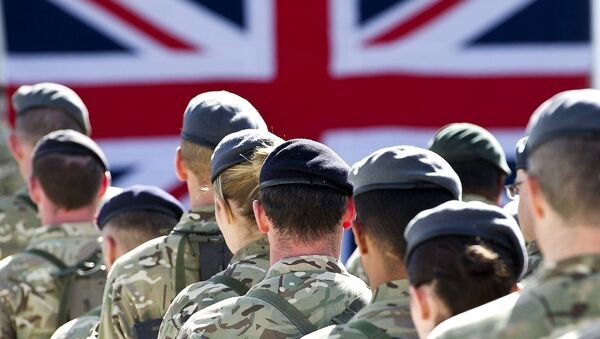Five years after Cameron ordered massive cuts to the UK defense forces — including scrapping the entire Harrier aircraft fleet, mothballing a brand new aircraft carrier, cutting the army by 7,000 and disposing of its entire Nimrod surveillance air fleet — Cameron has been forced to announce a U-turn.
More planes, more ships, more people. The Strategic Defence & Security Review is about Britain's national security. pic.twitter.com/efDZe5Dl70
— David Cameron (@David_Cameron) November 23, 2015
Following the Paris attacks, in which 129 were killed and hundreds injured after a series of shootings and suicide bombings by ISIL-supporting terrorists, and the decision by the UN to "take all necessary action" in the fight against Islamic State, Cameron has pledged to spend an extra US$270 billion on Britain's defense budget.
This Monday morning I am visiting Paris to show our continued support to the French people and to discuss with President…
Posted by David Cameron on Monday, November 23, 2015
In 2010, after Cameron had become prime minister leading a coalition government with the Liberal Democrats, he immediately announced a review of the UK defense budget. His government said:
"Defense cannot continue on an unaffordable footing."
At the time, UK Secretary of State for Defense, Dr Liam Fox, said:
"Tough decisions are required to reconfigure our Armed Forces to confront future threats whilst we also tackle the £38 billion (US$57.5bn) deficit that has accumulated in the 12 years since the last Defense Review."
The cuts included mothballing one of the two brand new Queen Elizabeth class aircraft carriers and reducing the number of F-35 jets, scheduled to be deployed on them. Worse still, the government also changed its mind twice over the type of F-35 it would purchase — switching from the conventional take-off and landing (CTOL) type to the short-take-off-vertical-landing version and then back again to the CTOL. The decision to mothball one of the carriers was reversed in 2014.
World map and tables showing defence spending worldwide @voxdotcom http://t.co/kq7RV5Astq pic.twitter.com/pJ5qSLbjRm
— Beautiful Maps (@BeautifulMaps) October 5, 2015
Its existing aircraft carrier — HMS Illustrious — was decommissioned and its fleet of Harrier aircraft scrapped. Army numbers were reduced to the point that one commentator said the UK would be "unable to put sandals in the sand, let alone boots on the ground" in the fight against ISIL.
The cuts threatened to jeopardize the UK's commitment to maintain defense budgets at 2 percent of GDP as it slashed the regular army personnel by 10 percent and both the RAF and the Royal Navy by 5,000 each.
Massive Boost to Defense Budget
However, Cameron Monday — spurred on by the international consensus on taking on ISIL and following the Paris attack — has announced a US$270 billion investment in defense equipment and support over the next decade.
PM: We will be funding an increase in the security services of 1,900 personnel and safeguarding the counter-terrorism budget #PMQs
— No. 10 Press Office (@Number10press) November 18, 2015
Nine new Boeing P8 maritime patrol aircraft for maritime surveillance, anti-submarine and anti-surface ship warfare will replace the scrapped Nimrod fleet, as the UK struggled to keep track of foreign submarines in UK waters.
The UK will extend the life of its multirole Typhoon for 10 extra years through to 2040, creating two additional squadrons. The UK will also create two new 'strike brigades' by 2025 to be rapidly deployable, able to self-deploy thousands of kilometers, and with a much lower logistic footprint. They will use the new Ajax family (previously known as Scout) range of vehicles, comprising 6 variants and almost 600 armoured vehicles.


